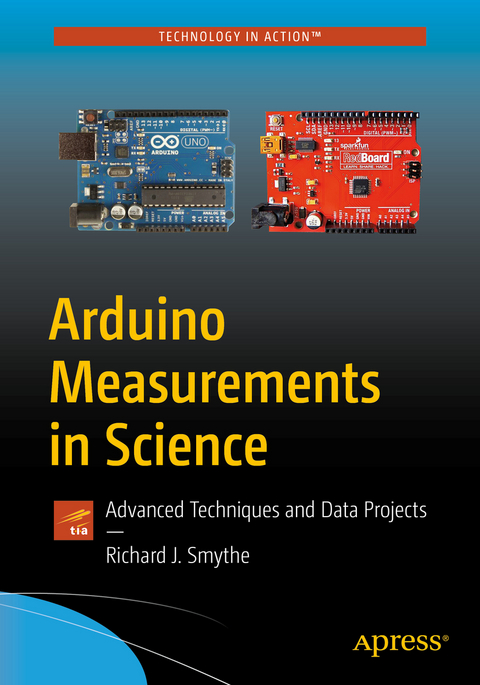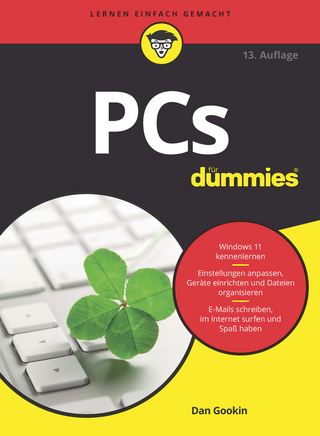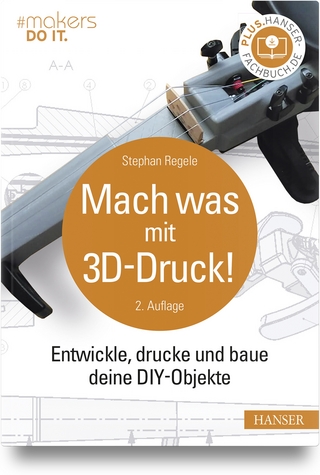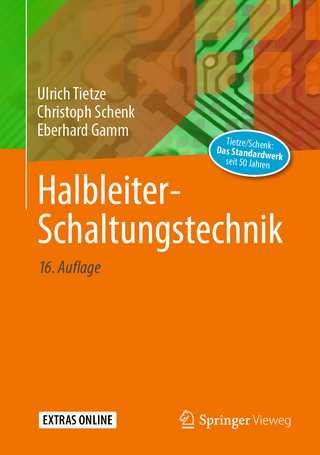
Arduino Measurements in Science
Apress (Verlag)
978-1-4842-6780-6 (ISBN)
You'll apply the Arduino and sensors to take measurements at the macro-, milli-, micro-, nano- and pico-sensitivity ranges. By working through the projects in this book, you’ll learn how to apply these techniques in the lab or field in areas such as weighing samples at the gram or milligram levels, measuring water temperature to a tenth of a degree, or its conductivity in milli or micro Siemens. With these projects, you can reliably measure, store, and experiment with a wide range of scientific data.
Arduino Measurements in Science features a novel approach and several little known techniques to measure data that requires only basic and accessible hardware – perfect for the home or school workshop!
What You’ll Learn
Make basic scientific measurements with PCs, and Linux based computing systems
Review techniques for weighing measurements down into the double and even single digit milligram
Use inexpensive sensors and displays to quantify and validate sensor data
Incorporate weighing scales, electrometers, magnetic and static field detectors, motion and vibration detectors, and more
Understand the possible noise and accuracy problems that can occur and best practices to refine your projects
See the benefits of data validation for graphical data display
Who Is This Book For
Readers looking to acquire the basic science and engineering skills required to assemble fundamental measurement systems to implement with the simple hand tools found in most home or school workshops.
Richard J. Smythe attended Brock University in its initial years of operation in southern Ontario and graduated with a four year honours degree in chemistry with minors in mathematics and physics prior to attending the University of Waterloo for a master’s degree in analytical chemistry and computing science and a doctorate in analytical chemistry. After a post-doctoral fellowship at the State University of New York at Buffalo in electro-analytical chemistry Richard went into business in 1974 as Peninsula Chemical Analysis Ltd. Introduced in 1966 to time-shared computing with paper tapes, punched cards, BASIC prior to Fortran IV at Waterloo, the PDP 11 mini-computers and finally the PC, Richard has maintained a currency in physical computing using several computer languages and scripting codes. Professionally Richard has functioned as a commercial laboratory owner and is currently a consulting analytical chemist, a civil forensic scientist as PCA Ltd., a full partner in Walters Forensic Engineering in Toronto, Ontario and senior scientist for Contrast Engineering in Halifax Nova Scotia. A large portion of Richard's professional career consists of devising methods by which a problem that ultimately involves making one or more fundamental measurements can be solved by using the equipment at hand or using a readily available “off-the shelf/ out of the box” facility to provide the data required.
Chapter 1: Capacitance and Charge.- Chapter 2: Current.- Chapter 3: Heat and Temperature.- Chapter 4: Light, Optics, and Photoelectric Effects.- Chapter 5: Magnetics, Magnetoresistance, and Hall Effects.- Chapter 6: Motion and Vibration.- Chapter 7: Resistance and Conductivity.- Chapter 8: Voltage.- Chapter 9: Weight, Mass, and Force .- Chapter 10: Data Collection, Storage, and Networking.- Chapter 11: Powering Experiments.
| Erscheinungsdatum | 04.10.2021 |
|---|---|
| Zusatzinfo | 280 Illustrations, color; 133 Illustrations, black and white; XLIII, 693 p. 413 illus., 280 illus. in color. |
| Verlagsort | Berkley |
| Sprache | englisch |
| Maße | 178 x 254 mm |
| Themenwelt | Informatik ► Weitere Themen ► Hardware |
| Schlagworte | Arduino • Citizen scientist • Data • Displays • Maker • Maker projects • measurements • Sensor Data • sensors |
| ISBN-10 | 1-4842-6780-X / 148426780X |
| ISBN-13 | 978-1-4842-6780-6 / 9781484267806 |
| Zustand | Neuware |
| Haben Sie eine Frage zum Produkt? |
aus dem Bereich


